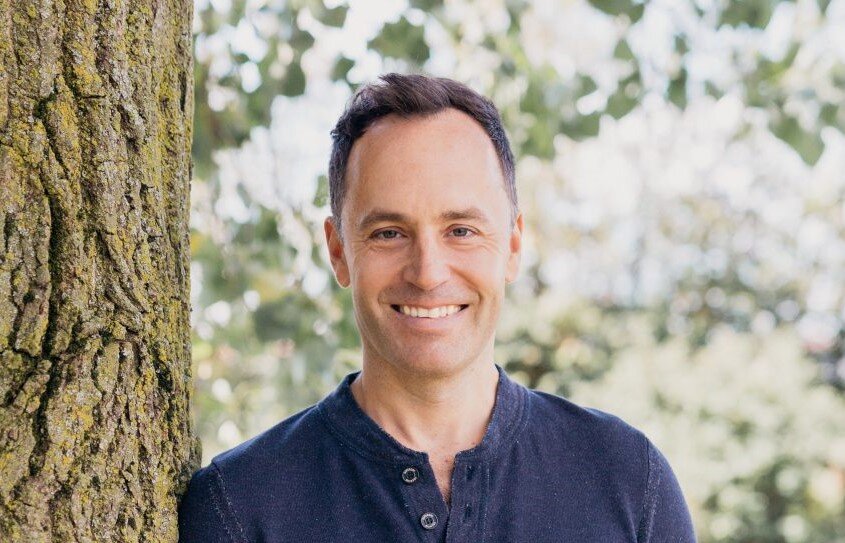
Even experienced meditators can’t always articulate how meditation works. I used to fall in that category. I swore by meditation because I knew it was good for me, but if you asked me to explain how meditation benefited me in other areas of life, I would have drawn a blank. Knowing what skills meditation develops is helpful when explaining meditation to other people. And it increases our awareness of the process, which may lead to better subjective results.
Jeff Warren is a global meditation teacher and author of the widely acclaimed book The Head Trip: Adventures on the Wheel of Consciousness. Per his Wikipedia, he is founder of the Toronto-based meditation group Consciousness Explorers Club. A few months ago Warren appeared on the Joe Rogan Experience with co-guest ABC News correspondent, Dan Harris. Warren and Harris are both avid meditators, and the conversation naturally turned toward the discipline. I gleaned a lot of insight from their exchange, but in this post I want to focus on a segment in which Warren discusses the three life skills of meditation–concentration, clarity, and equanimity.
I’ve transcribed the entire segment below! FYI, it begins around the 1:05:06 mark. [Update: The video was removed, but you can still access the transcript below.]
Transcript:
May I just say something about where it turned the corner for me when I was practicing because I was a terrible meditator. It was understanding the actual skills that we’re building. And that’s the thing I think that links all of what we’re talking about when you talk about martial arts. When you talk about being a broadcaster. When you talk about comedy. When you talk about practice. There are particular kinds of mind-body skills that we’re training. And those skills have names. There’s a feeling that’s happening that you can experience when you’re training that muscle group. When I started understanding things that way–Kazu Shinzen[?], because he talks about it that way. Buddhism talks about it that way–the factors of awakening. You’re building up concentration, which is your capacity to pay attention to what you want to pay attention to. It’s like a commitment. Your mind wanders, you bring it back.
You’re building up clarity, which is your ability to be clear and make discernment about what’s happening in your experience. What’s happening in your social experience. Is this the right time to say this thing? What’s happening inside me. What am I really feeling versus how I’m acting. So dialing up that resolution dial.
And building up equanimity, which is can I actually not fight with my experience as it’s unfolding? Can I have this centeredness in the middle of what’s going on whether I’m doing martial arts. Whether I’m doing comedy. Whether I’m doing meditation.
The beauty of a meditation practice is it makes explicit what those skills are. In a simple situation with your eyes closed, you can notice when you’re being concentrated, when you’re being clear, when you’re being equanimous, when you’re building friendly–which is another good skill. You notice when that’s happening and because you notice when it’s happening you can start to notice how to apply it in every other area of life. So that’s all it is. All practice is is about being explicit and deliberate about what qualities of existence, of being, that you want to train in your life. And then you just try to apply it everywhere. And so that’s why you can get people–I see them as basically meditation masters–on a comedy stage. Or people who are better meditation masters in the sports arena. Or in a cage-match or whatever it is. They’re applying the same principles, so all of these are paths that can bring you into more presence in your life.
The problem comes when people start saying “Nope, but my path is the good path.” “Oh yeah, but I teach meditation, that’s more meditation.” “No, no, no I do a body practice. This is more fundamental.” It’s about the skills. Those are what’s fundamental.

[…] Mindfulness a skill that can be developed. Every moment we redirect our wandering brain to the present moment is a victory for mindfulness. And a victory for a more high-definition, pain-processing, power-possessing, love-infused existence. […]
[…] make the present much less enjoyable (or more unpleasant than it already is). Meditation develops three important life skills critical to being mindful: concentration, clarity, and equanimity (emotional stability). Even people who haven’t taken up the discipline of meditation regularly […]
[…] it surprisingly has to do with meditation. A few months ago, I published an article on the three important life skills of meditation—concentration, clarity, and equanimity (emotional stability). Nothing will make you […]